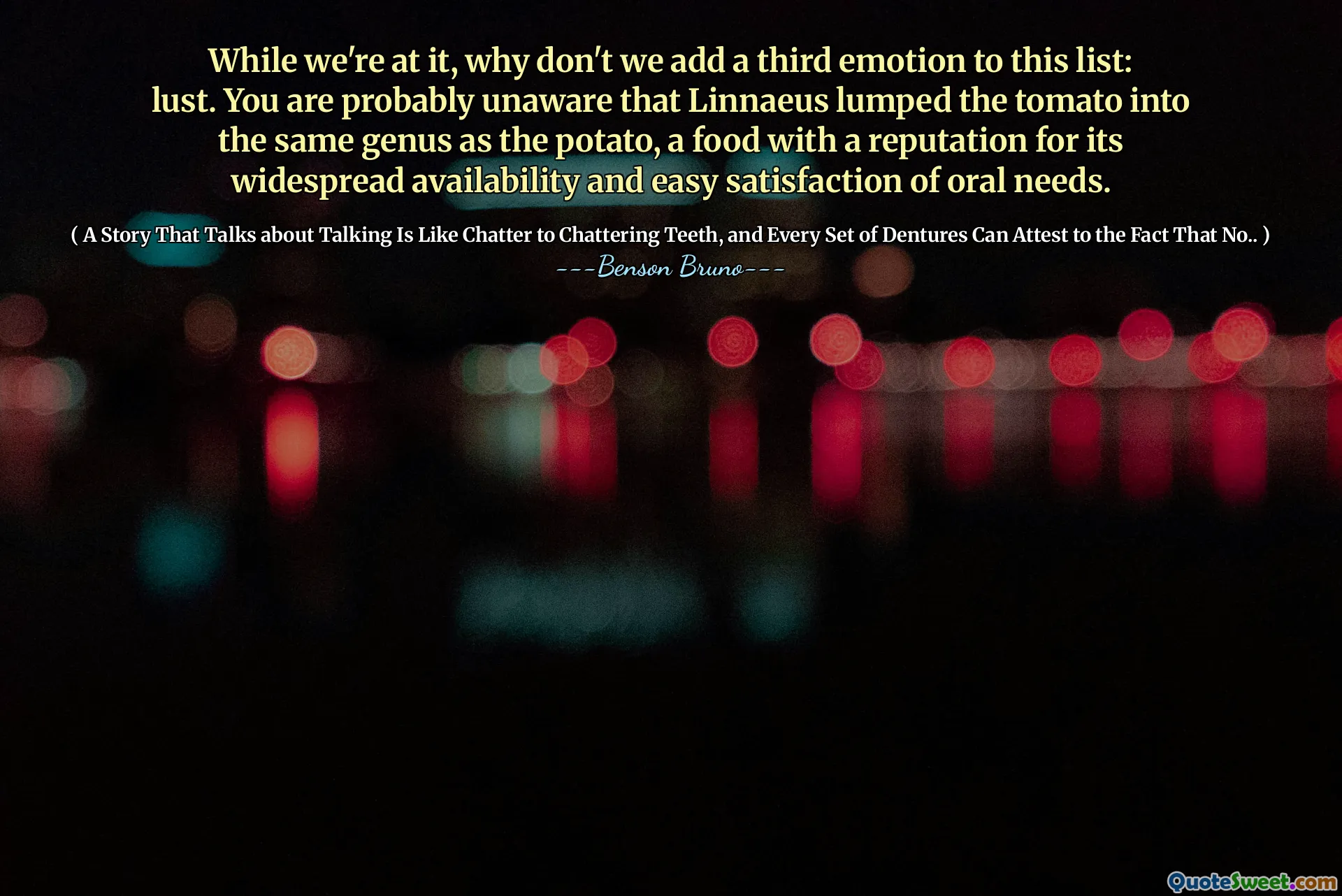
While we're at it, why don't we add a third emotion to this list: lust. You are probably unaware that Linnaeus lumped the tomato into the same genus as the potato, a food with a reputation for its widespread availability and easy satisfaction of oral needs.
This quote invites a fascinating reflection on human emotions, natural classification, and cultural perceptions. The suggestion to add lust as a fundamental emotion underscores how human feelings can sometimes be overlooked or underestimated in favor of more socially accepted or civil emotions like love, happiness, or sadness. Lust, as a raw and primal feeling, is an intrinsic part of human experience that influences behavior, relationships, and societal norms. The mention of Linnaeus's classification of the tomato and the potato highlights how humans categorize and perceive things based on utility, appearance, and their roles in sustenance. Linnaeus, known for his binomial nomenclature, ordered nature into understandable groups, but this categorization also connects to how societies assign meanings and roles to objects or concepts—sometimes elevating and sometimes diminishing them. The tomato's inclusion alongside the potato symbolizes how we assign importance to certain foods, rooted not just in their biological grouping but in their cultural value and societal perception. The humorous yet provocative tone hints at the importance of considering more primitive or instinctual aspects of ourselves that shape human experience. It challenges us to broaden our understanding of what emotions influence us and how our classifications—whether of foods, emotions, or ideas—are intertwined with cultural and biological narratives. Ultimately, it's a reminder that beneath the veneer of civility, primal instincts and natural classifications persist, shaping human behavior and perception in subtle yet profound ways.






